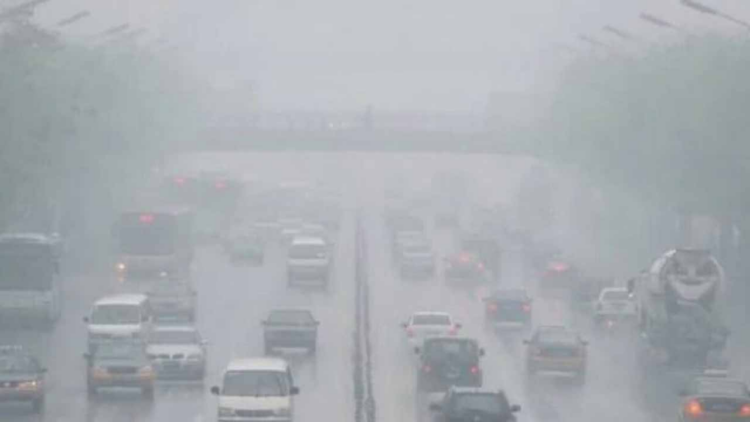Ever wondered why we bless people when they sneeze? Is it a celebration of their resilience in harsh weather, a wish for a long life, or as the saying goes, a response to being talked about when someone calls your name? In the playful banter with my sister, I’ve even scolded her not to mention my name in the gossip she shares with our mum. It’s a unique tradition in Nigeria to bless someone who sneezes, especially if they’re family, friends, or associates. Interestingly, it’s frowned upon when a random person sneezes, and perhaps if there’s an unpleasant smell attached to it. So, here’s a big “Bless you” to those coughing, my welcome note in this Harmattan season.
In the spirit of Nigeria’s unique tradition of blessing sneezes and navigating the quirks of Harmattan, the question arises: Is this tradition a yes or a nay for you? Perhaps it’s time for a virtual lesson on the art of sneezing in public and why preparing for the dusty haze of this Harmattan season is crucial. Consider this a summoning to the call of healthy living, where we explore the humor in our traditions and equip ourselves for the challenges this distinctive season brings.
The tradition of blessing someone when they sneeze is deeply ingrained in our culture. It’s a reflex, a courteous acknowledgment of a bodily function. But is it a practice you wholeheartedly embrace, or do you find yourself questioning its origins and relevance? The humor in blessing sneezes is undeniable, and perhaps a virtual lesson on the etiquette of sneezing in public could add a touch of lightheartedness to our lives.
1.Sneezing Etiquette:
Cover your mouth and nose with a tissue or your elbow to prevent the spread of germs.
Excuse yourself when possible and maintain a distance from others.
Carry hand sanitizer for quick cleanup if tissue isn’t available.
2.Why Prepare for Harmattan:
Dusty Haze: Harmattan brings a dry, dusty wind that can affect visibility.
Health Risks: Dry skin, chapped lips, respiratory discomfort, and other health issues are common.
Safety Measures: Hydration, moisturizing, protective clothing, and caution with fires are essential.
Speaking of Harmattan, with humidity dropping to 15%, it can cause a range of health issues. From dry skin and chapped lips to respiratory discomfort and spontaneous nosebleeds, it’s crucial to stay hydrated, moisturized, and steer clear of dusty areas.
Surviving Harmattan:
1.Hydration: Make water, lemons, oranges, and other vitamin-rich fruits your allies.
2.Clothing: opt for adaptable outfits that can handle temperature fluctuations, preferably cotton and loose fits.
3.Skincare: Regularly moisturize, especially focusing on lips and hands, to combat harmful effects.
4.Safety: Be cautious with fires, protect against dust with sunglasses and face masks, and avoid touching your face.
5.Hair Care: Combat dryness with protective hairstyles, steam treatments, leave-in conditioners, and essential oils.
Now, let’s delve into some common illnesses associated with Harmattan and expand on each to meet our word count goal:
- Cold:
A viral infection affecting the upper respiratory tract, primarily the nose.
Symptoms include sneezing, runny nose, and sometimes fever.
Prevention involves staying warm, maintaining good hygiene, and boosting your immune system with vitamin-rich foods.
- Dry Skin:
A prevalent condition during Harmattan due to low humidity.
Symptoms include rough, itchy, and flaky skin.
Counteract dry skin by staying well-hydrated and using moisturizers containing essential oils.
- Catarrh:
An inflammatory condition of the mucous membrane in the nose and throat.
Symptoms include a stuffy or runny nose and coughing.
Steam inhalation and staying hydrated can help alleviate catarrh.
- Asthma:
A chronic respiratory condition characterized by inflammation of the airways.
Harmattan’s dry, dusty air can trigger asthma symptoms.
Asthmatics should take extra precautions, including keeping inhalers handy and avoiding dusty areas.
- Cough:
Common during Harmattan due to dry air and dust.
Hydration, warm beverages, and throat lozenges can provide relief.
- Fire Outbreaks:
Dry conditions during Harmattan increase the risk of fires.
Avoid open flames, be cautious with electrical appliances, and educate communities on fire safety measures.
- Poor Visibility:
Dusty Harmattan conditions can lead to reduced visibility.
Use headlights, drive cautiously, and wear protective gear when outdoors.
- Health Hazards:
Harmattan’s dry and desiccating wind poses various health hazards.
Adequate hydration, protective clothing, and avoiding prolonged exposure can mitigate these risks.
As we navigate the intricacies of our traditions and the challenges posed by Harmattan, let’s make it a collective effort to prioritize our well-being. Embrace the humor, share a laugh over the blessing of sneezes, and equip yourself with the knowledge to navigate public sneezing gracefully. Prepare for Harmattan by adopting healthy practices, staying hydrated, and safeguarding against potential risks.











